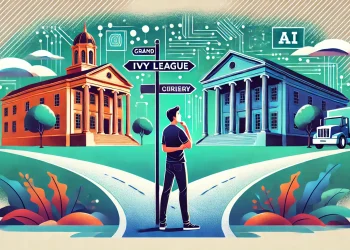No products in the cart.
The Significant Impact of the ‘New Normal’ on Education
“In 2020, Covid-19 hit the education industry like a tornado and accelerated growth in a completely different direction”
The Covid-19 virus is not the only thing that has undergone several major mutations over the past year. In fact, it is quite clear that the complete revamp of our education system is one other significant change we have seen over this period. Even the most erudite of scholars could not have predicted this epic modification that the entire education system, especially teachers, has had to go through to merely survive. It is nothing short of a miracle that, without any formal training for the most part, teachers adapted and reinvented themselves in a matter of a few months and took to remote learning like fish take to water.
As an educationist who has been associated with various schools in India and abroad, I am elated, to say the least, that the coronavirus pandemic has completely turned the idea of education and its delivery on its head – something that hundreds of coaches, teacher trainers, mentors and change makers had not been able to achieve over decades.
In this article, I will try to explore various factors that have influenced the education industry and whether curriculum delivery has changed for better or for worse. The burning question of the hour is whether we should we continue hybrid education and shake things up or go back to our old ways?
Compared to other industries, the Indian education industry has been known to be extremely rigid in its ways of working. It is fascinating, as well as mindboggling, that any parent who went to school in the nineties would still be able to, broadly, relate to the syllabus and curriculum content of their own children; who attend school in today’s day and age. Was their world similar to the world of today’s children? Of course, not! Well, leaving aside a younger workforce, fancy ICT tools, laptops, tablets, and so forth, there isn’t much that has changed in terms of education. And is that really what you call change?
In 2020, Covid-19 hit the education industry like a tornado and accelerated growth in a completely different direction. Those who were resistant to distance and online education were forced to seriously consider remote learning as the future of education. Companies involved in content creation, knowledge development, professional development are having a field day taking training workshops for teachers who were technologically handicapped, or whose ICT knowledge was limited to checking emails or making PowerPoint presentations.
Distance / online education is the name of the game now. Teachers who have adapted and adopted the necessary skills are reveling in their new-found glory. Students who are self-motivated and focused on personal growth and development have shown remarkable improvement in understanding. Lesson planning now incorporates tools like MS Teams, Zoom, Nearpod, Wakelet, YouTube, Padlet, and many more.
Home schooling, which was almost taboo in the Pre-corona era, is now a practical alternative for stay-at-home parents. It is already a popular option for children with special needs or those who have no access to education, also for parents who aspire to an early start in the careers of their children (like music, sports, etc.) and might prefer that they invest hours in practicing tennis or riyaaz in music instead of acquiring text book knowledge which will be of little use to them. This could also now become a popular choice for parents who wish to get an international education for their children but do not wish to dive deep into their pockets for exorbitantly priced international schools.
In fact, home-schooling or remote learning can also offer flexibility to students who want to explore and undertake professional courses like theatre, gardening, cooking, gaming as compared to a time when their life had been all about attending school, tuitions, prepare for entrance exams, and going on to becoming doctors or engineers. I have nothing against these professions but, as a teacher, I am empathetic towards children who have no interest in them but are forced to take them up due to parental pressure or lack of other viable options.
Another radical shift that has occurred has been from an excessive preoccupation with academics towards a focus on developing life skills, as well as strengthening emotional and mental health. According to Wikipedia, education is defined as the process of facilitating learning, or the acquisition of knowledge, skills, values, morals, beliefs, and habits; but, the focus had been on certain professions and on training students to take entrance exams. Learning for the sake of learning and the joy of discovering new things had completely disappeared from the education system. The erstwhile Indian Gurukul system centered on living a fulfilling life, where each individual worked towards maximizing their own potential, but that philosophy was most conveniently ignored when education transformed into a profit-making venture.
“As an educationist who has been associated with various schools in India and abroad, I am elated, to say the least, that the coronavirus pandemic has completely turned the idea of education and its delivery on its head – something that hundreds of coaches, teacher trainers, mentors and change makers had not been able to achieve over decades”

“The erstwhile Indian Gurukul system centered on living a fulfilling life, where each individual worked towards maximizing their own potential, but that philosophy was most conveniently ignored when education transformed into a profit-making venture”
Coming back to the most important stakeholder – the student – I am extremely happy for them, because their double income-earning parents have been coerced to shift their focus back to them, and to tending to their social, emotional and behavioral needs. Having said that, too much parental involvement is a double-edged sword and can thwart the personality of children. Parents must walk a tightrope between being too involved and completely disconnected with their child’s well-being. This period, when parents have had to monitor their children while they attend school from home, has unquestionably made parents more appreciative of teachers than ever; but at the same time, their ever-increasing demands from teachers can be unreasonable at times.
When a survey in the US was conducted to assess the emotional health of teachers during Covid-19, responses from over 5,000 teachers underlined the same emotions I have been experiencing: “frustrated, overwhelmed, stressed, tired, and happy”. Yes, these are the words I will use to describe my exhaustion right now. Teachers have been constantly working from home and delivering lessons to keep their students engaged. It is a pity that many schools have let their staff go as they were not able to retain them. To make matters worse, the salary that teachers earn is not commensurate with their working hours. One of the most common grievances is that teachers need to complete notebook/online corrections, assessment papers, lesson planning in their own personal time, cutting back on their own family time. Besides, one must now answer emails constantly and be available to students all round the clock.
However, we must take a step back and reassess the situation that we are grappling with. This is the time for some self-introspection and to redefine the roles of the three most important stakeholders in the business of education – the student, the parent, and the teacher.
To conclude, I will leave you with a question – have things changed for the better or for worse? That, only time itself can reveal; but it is essential to reflect from the perspective of the teacher who is most often overlooked, but whose social and emotional well-being is as important as the students’; because you cannot ‘pour from an empty cup’. As far as the education industry is concerned, I think Oprah Winfrey sums it up beautifully in her quote, “One of the hardest things in life to learn are which bridges to cross and which bridges to burn.” I hope we, as Covid-19 survivors, can discern which bridges to cross and which bridges to burn.
- The article was originally published in Career Ahead April 2021 issue.











